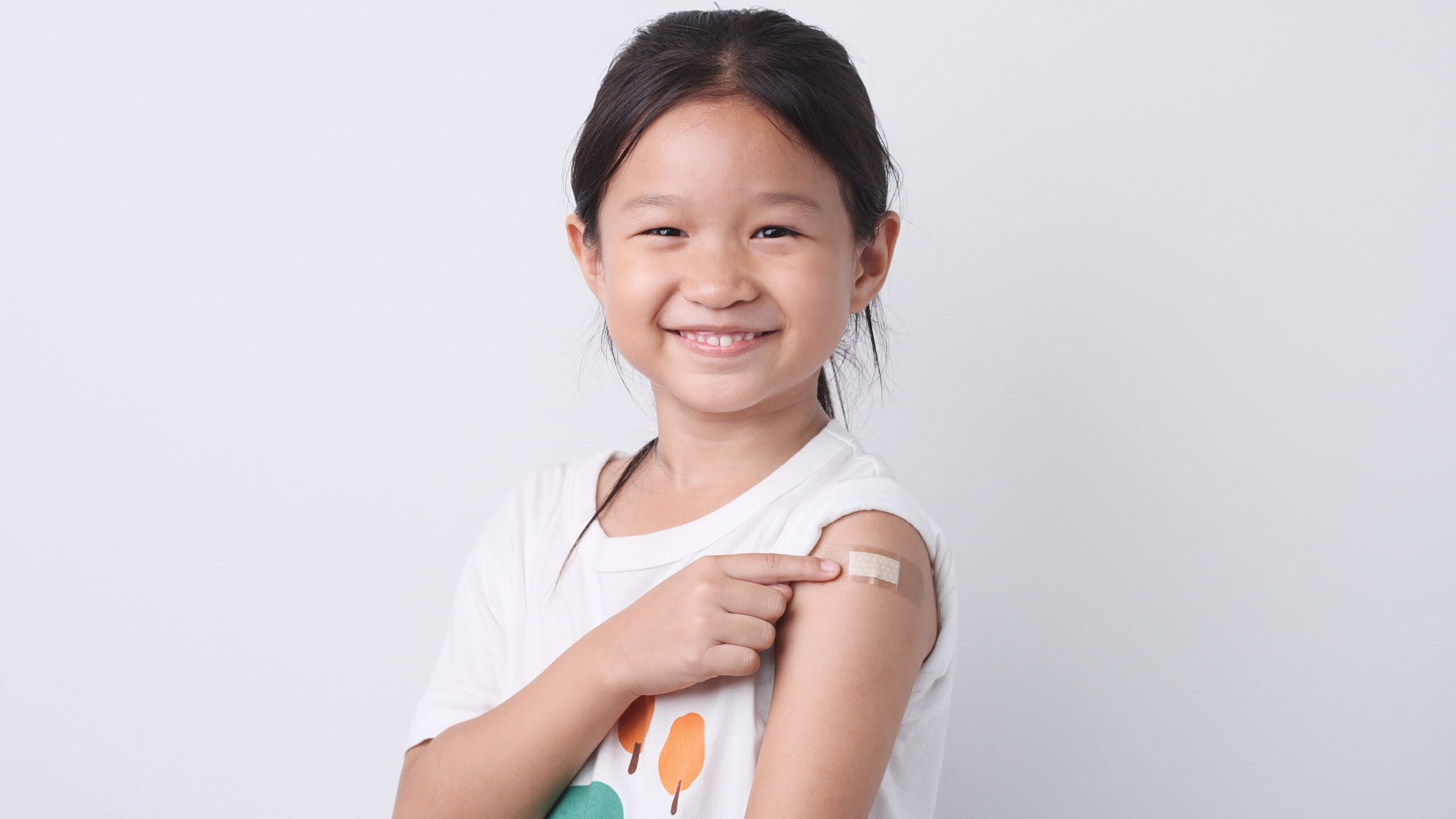The full story is posted on The Arab American News website. Read the full story here.
Everything you need to know about COVID-19 vaccination for your children
When children are left unvaccinated, they are vulnerable to potentially deadly diseases like COVID-19. Overwhelming consensus exists within the medical community that vaccination is the best thing you can do to protect them from serious illness.
Although COVID-19 is usually milder in children than in adults, some children can still get very sick and have long-lasting symptoms or complications. Another reason to get your child vaccinated is to help protect the health of others. Fewer overall infections among broad populations means there is less opportunity for dangerous variants to develop that might be resistant to available vaccines and treatments.
The U.S. Centers for Disease Control and Prevention (CDC) recommends the COVID-19 vaccines for everyone ages 6 months and older, if eligible. The bivalent COVID-19 vaccine targets the most recent and more contagious variants (BA.4 and BA.5) and is available for everyone 6 months and older. Contact your primary care provider for specific eligibility. COVID-19 vaccine schedules vary based on age, product, and immune status. Parents should consult with their child’s doctor to determine how many COVID-19 vaccine doses are recommended. You can also view the CDC’s COVID-19 Vaccine Schedule for 6 Months and Older.
As parents, determining how best to protect our children can be overwhelming, and it’s OK to have questions. See answers below to a few questions about the COVID-19 vaccine for children and visit Michigan.gov/kidsCOVIDvaccine to learn more.
COVID-19 vaccines are safe, effective and available for children 6 months and older. Protect your child and save lives by making the decision to get them vaccinated.
Should I be worried about how quickly these vaccines were created?
No. Scientists had already begun research for coronavirus vaccines during previous outbreaks caused by related coronaviruses (Severe Acute Respiratory Syndrome and Middle East Respiratory Syndrome). That earlier research provided a head start for rapid development of vaccines to protect against infection with COVID-19.
No steps were skipped in the development of this vaccine, but modifications to the process shortened the timeline without sacrificing safety, such as:
Overlapping phase I and phase II clinical trials. Scientists looked at data from a group of people in phase I as phase II was progressing to make evaluations.
While completing large phase III trials, manufacturers began producing the vaccine, so that if it was shown to be safe and effective, they would have large numbers of doses ready. While waiting for a vaccine to be ready, many other aspects of vaccine delivery were prepared.
Which vaccine should my child get? Pfizer or Moderna? Are they both as effective?
Both the Moderna and Pfizer vaccines are safe and effective at reducing risk from the COVID-19 virus. Parents or caregivers may choose which vaccine their child gets, but most health care providers will only have one type of vaccine available. We encourage you to get whichever vaccine is available.
Both vaccines are effective at reducing the rate of infection and create similar levels of immunity in kids. It is estimated that both vaccines decrease the rate of hospitalization, the rate of MIS-C, and the rate of ICU stays.
COVID-19 vaccine dosage is based on age on the day of vaccination, not on size or weight. Children receive a smaller, age-appropriate dose. You can learn more about the different doses based on age on the CDC website.
Side effects were generally mild to moderate in severity and occurred within two days after vaccination, and most went away within one to two days.
Can children get the vaccine without parent permission?
Minors ages 6 months through 17 years need parental consent to be vaccinated.
My child has had COVID-19. Should they still get the vaccine?
Emerging evidence indicates that people can get added protection by getting vaccinated after having been infected with COVID-19. So, even if a child has had COVID-19, they should still get vaccinated. For children who have been infected with COVID-19, their next dose can be delayed three months from when symptoms started or, if they did not have symptoms, when they received a positive test result.
Is it safe for my child to get a COVID-19 vaccine if they want to have a baby one day?
Yes. According to the experts at the American College of Obstetricians and Gynecologists (ACOG), if you are planning or trying to get pregnant, you can get a COVID-19 vaccine. There is no evidence suggesting that fertility problems are a side effect of any of the COVID-19 vaccines available for use in the U.S.
Scientists study every vaccine carefully for side effects immediately and for years afterward. Like all vaccines approved/authorized for use in the U.S., the COVID-19 vaccines are being studied carefully now and will continue to be monitored for safety for many years. Further, you do not need to delay getting pregnant after you get a COVID-19 vaccine.
If you find out you are pregnant after you have the first dose of a COVID-19 vaccine, you should still get the second dose and/or booster doses. Contact your doctor if you have any questions or concerns.
Will getting the COVID-19 vaccine help my child go back to school, sports, and other activities?
When enough people are protected from the coronavirus, the risk of infection for your child — and the population in general — continues to decline. Vaccines, along with other precautions like mask wearing and social distancing if and when cases increase in your community, will help reduce the spread of COVID-19.
One of the biggest benefits of vaccination is your family’s ability to return to pre-pandemic life. Fully vaccinated people may not be required to participate in testing programs – like those used for school sports — and don’t need to quarantine after being exposed to others with COVID-19.
The decision to vaccinate your child against COVID-19 protects them and helps slow the spread of this potentially life-threatening virus.

